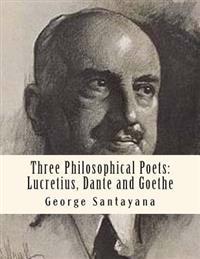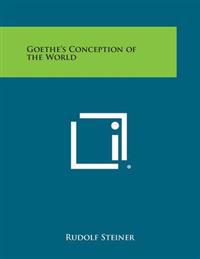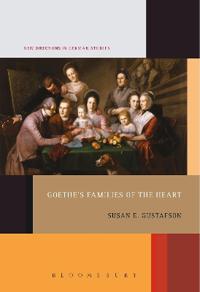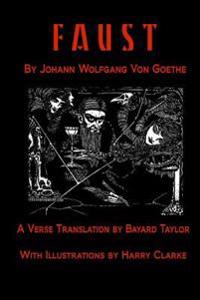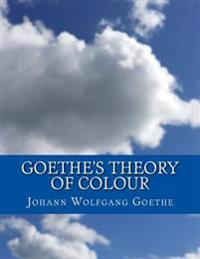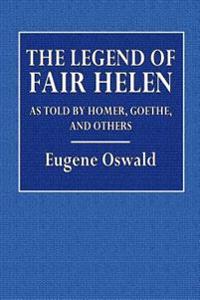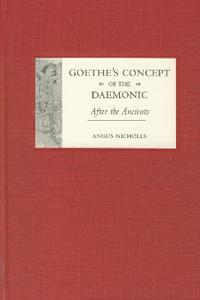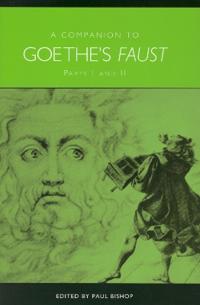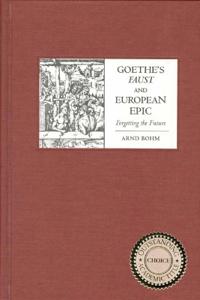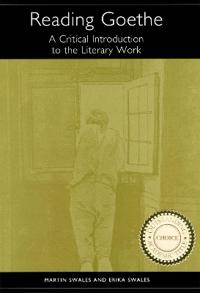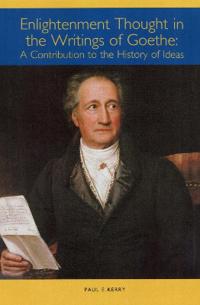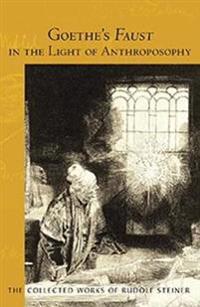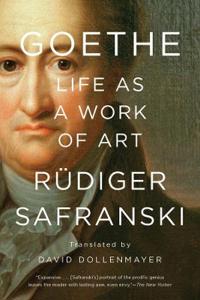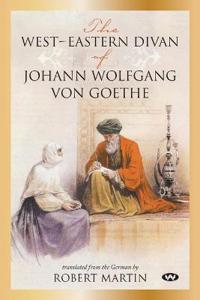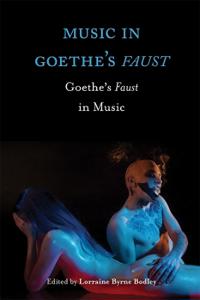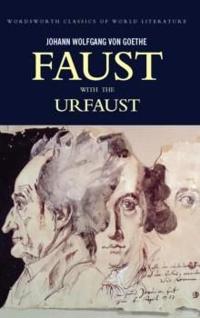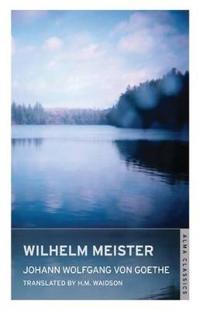Three Philosophical Poets: Lucretius, Dante and Goethe (Häftad)
ISBN: 9781492707349 - UTGIVEN: 2013-09Wilhelm Meisters Lehrjahre Buch 2 (Häftad)
avJohann Wolfgang Von Goethe
ISBN: 9781500247171 - UTGIVEN: 2014-06Goethe's Families of the Heart (häftad)
ISBN: 9781501336072 - UTGIVEN: 2017-08Throughout his literary work Goethe portrays characters who defy and reject 18th and 19th century ideals of aristocratic and civil families, notions of heritage, assumptions about biological connections, expectations about heterosexuality, and legal mandates concerning marriage. The questions Goethe[...]
Faust by Johann Wolfang Von Goethe: Translated by Bayard Taylor Illustrated by Harry Clarke (häftad)
ISBN: 9781519527998 - UTGIVEN: 2015-11The Legend of Fair Helen: As Told by Homer, Goethe, and Others (häftad)
ISBN: 9781530442560 - UTGIVEN: 2016-03Goethe's Concept of the Daemonic
ISBN: 9781571133076 - UTGIVEN: 2006-05For Plato, the daemonic is a sensibility that brings individuals into contact with divine knowledge; Socrates was also inspired by a "divine voice" known as his "daimonion." Goethe was introduced to this ancient concept by Hamann and Herder, who associated it with the aesthetic category of genius. T[...]
A Companion to Goethe's Faust (Pocket)
avPaul (EDT) Bishop
ISBN: 9781571133359 - UTGIVEN: 2006-05Undisputedly a canonical work, "Goethe's Faust" is also the key to understanding its author, one of European civilization's most complex figures. Written over several decades, the work spans both Goethe's life and an age of enormous social, political, philosophical, and artistic change - even revolu[...]
Goethe's Faust and European Epic: Forgetting the Future
ISBN: 9781571133441 - UTGIVEN: 2007-03Goethe has long been enshrined as the greatest German poet, but his admirers have always been uneasy with the idea that he did not produce a great epic poem. A master in all the other genres and modes, it has been felt, should have done so. Arnd Bohm proposes that Goethe did compose an epic poem, wh[...]
Reading Goethe (Pocket)
avMartin Swales, Erika Swales, Martin Swales
ISBN: 9781571133588 - UTGIVEN: 2007-08The year 1999 saw the 250th anniversary of the birth of Johann Wolfgang von Goethe, Germany's greatest writer. Appropriately, literary scholars within Germany and beyond paid tribute to this remarkable talent. But a number of commentators also noted that Goethe is often revered rather than read, kno[...]
Enlightenment Thought in the Writings of Goethe
ISBN: 9781571134073 - UTGIVEN: 2009-05Throughout his oeuvre Goethe invokes the writers and thinkers of the Enlightenment: Voltaire and Goldsmith, Sterne and Bayle, Beccaria and Franklin. And he does not merely reference them: their ideas make up the salt of his most acclaimed works. Like Hume before him, Goethe takes up the topic of sui[...]
Analytical Psychology and German Classical Aesthetics: Goethe, Schiller, and Jung (Storpocket)
ISBN: 9781583918098 - UTGIVEN: 2007-07In this volume, Paul Bishop investigates the extent to which analytical psychology draws on concepts found in German classical aesthetics. It aims to place analytical psychology in the German-speaking tradition of Goethe and Schiller, with which Jung was well acquainted. Analytical Psychology and Ge[...]
Faust (Inbunden)
avJohann Wolfgang von Goethe
ISBN: 9781606600504 - UTGIVEN: 2013-11This deluxe hardcover edition is the most sumptuous version ever of the story of the philosopher who sells his soul to the devil for knowledge and power. Harry Clarke's dark artistic vision is perfectly suited to Goethe's masterpiece. Twenty-one plates, eight of them color, complement the text, alon[...]
Goethe's Faust in the Light of Anthroposophy (häftad)
ISBN: 9781621480914 - UTGIVEN: 2016-10By late 1916, Rudolf Steiner had become an important interpreter of Goethe and frequently discussed Faust probably Goethe s greatest work from the perspective of anthroposophic Spiritual Science. Although Steiner s readings are unconventional and unsystematic, his insights into the text are penetrat[...]
Goethe: Life as a Work of Art (häftad)
ISBN: 9781631494895 - UTGIVEN: 2018-12Here, Rudiger Safranski sets his sights on the writer considered the Shakespeare of German literature. Goethe (1749-1832) awakened a burgeoning German nation and the European continent with his electrifying novel The Sorrows of Young Werther. Safranski scoured Goethe's oeuvre, relying on primary sou[...]
The West-Eastern Divan of Johann Wolfgang von Goethe (häftad)
ISBN: 9781743054239 - UTGIVEN: 2016-10Music in Goethe's Faust
ISBN: 9781783272006 - UTGIVEN: 2017-06That Goethe's poetry has proved pivotal for the development of the nineteenth-century Lied has long been acknowledged. Less acknowledged is the seminal impact in musical realms of Goethe's Faust/I>, a work which has attracted the attention of composers since the late eighteenth century and played a [...]
Faust (Storpocket)
avJohann Wolfgang von Goethe
ISBN: 9781840221152 - UTGIVEN: 199911Goethe's Faust is a classic of European literature. Based on the fable of the man who traded his soul for superhuman powers and knowledge, it became the life's work of Germany's greatest poet. Beginning with an intriguing wager between God and Satan, it charts the life of a deeply flawed individual,[...]
Faust (CD-bok)
avJohann Wolfgang von Goethe
ISBN: 9781843795490 - UTGIVEN: 2011-09Goethe's Faust is one of the pillars of Western literature. This classic drama, using the superb new translation by John R. Williams, presents the story of the scholar Faust, tempted into a contract with the Devil in return for a life of sensuality and power. Enjoyment rules until Faust's emotions a[...]
Wilhelm Meister (Häftad)
avJohann Wolfgang von Goethe
ISBN: 9781847492852 - UTGIVEN: 201301Seduced by the chimerical world of the theatre and taking upon himself the grand ambition of becoming a successful performer and dramatist, the merchant's son Wilhelm Meister embarks on a tumultuous quest of self-discovery. Along his path he finds himself having to negotiate love, desire and the nee[...]

